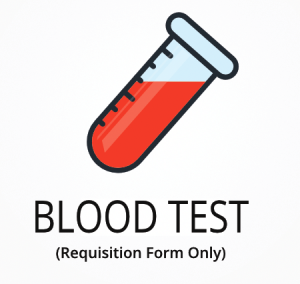Ordering the Urine Essential Elements | Doctor’s Data
Urine Essential Elements from Doctor’s Data helps measure key minerals and trace elements in the body, providing a clear picture of nutritional balance and possible exposure to toxic metals. This test is often used to check for imbalances that may affect bone strength, energy, memory, and muscle function. Interestingly, this test can also reveal hidden issues with how the body processes minerals, which may not show up in blood tests.
Ordering this test can help you:
- Identify mineral imbalances that may affect bone strength and joint comfort
- Detect possible exposure to heavy metals that could impact memory and focus
- Monitor nutrient levels that support energy and muscle function
- Track changes in mineral status after starting a new supplement or diet
- Support kidney function by checking for unusual mineral loss or retention
Who Should Consider Mineral and Trace Element Testing
People who notice changes in their nails, hair, or skin, or who feel tired and have trouble focusing, may benefit from this test. For example, someone who has started losing hair and feels more tired than usual might want to check if a mineral imbalance is playing a role.
Ordering this test may also be helpful if you:
- Have ongoing joint pain or muscle weakness that does not improve with rest
- Experience frequent skin rashes or changes in skin texture
- Notice memory loss or trouble concentrating that is new or getting worse
- Are recovering from exposure to environmental toxins at work or home
- Recently moved to an area with different water or soil mineral content, which can affect mineral intake in unexpected ways
Checking for mineral and trace element imbalances can help pinpoint the cause of symptoms like fatigue, brittle nails, or poor concentration, and guide targeted changes in diet or supplements. Delaying this test may allow imbalances to continue, making it harder to address symptoms early and effectively.
Preparing for a 24-Hour Urine Mineral Analysis
Fasting is not required for this test, but you will need to collect all urine over a 24-hour period using the provided kit. Always follow any instructions from your doctor or healthcare provider to make sure your sample is collected and handled correctly for the best results.
Labs Included When Ordering Your Urine Essential Elements | Doctor’s Data
| Test Name | Reference Range | What It Means | Low and High Levels of Urine Essential Elements | Doctor’s Data |
|---|---|---|---|
| Boron | 0.5 – 3.0 | Boron helps the body use calcium and magnesium, supporting bone and joint strength. It also plays a role in brain and hormone function. |
High levels mean possible over-supplementation or increased bone breakdown.
Low levels mean possible poor intake or absorption, which may affect bone and joint health. |
| Calcium | 100 – 300 | Calcium is needed for strong bones, teeth, and muscle movement. It also helps nerves send signals and supports heart rhythm. |
High levels mean possible bone loss, kidney issues, or high intake.
Low levels mean possible low intake, poor absorption, or kidney problems. |
| Chromium | 0.2 – 1.0 | Chromium helps the body use sugar and fat for energy. It is important for keeping blood sugar steady. |
High levels mean possible over-supplementation or exposure at work.
Low levels mean possible poor diet or absorption, which may affect blood sugar control. |
| Cobalt | 0.1 – 1.0 | Cobalt is part of vitamin B12, which helps make red blood cells and supports nerve function. |
High levels mean possible over-supplementation or exposure to metal.
Low levels mean possible B12 deficiency or poor absorption. |
| Copper | 10 – 30 | Copper helps make red blood cells, supports the immune system, and is needed for energy production. |
High levels mean possible over-supplementation, liver issues, or exposure to copper pipes.
Low levels mean possible poor intake, absorption, or increased loss. |
| Iron | 5 – 25 | Iron is needed to carry oxygen in the blood and supports energy and brain function. |
High levels mean possible over-supplementation or breakdown of red blood cells.
Low levels mean possible iron deficiency, blood loss, or poor absorption. |
| Lithium | 0.01 – 0.2 | Lithium is a trace element that may support mood balance and brain function, though it is needed only in very small amounts. |
High levels mean possible over-supplementation or kidney issues.
Low levels mean possible low intake or increased loss. |
| Magnesium | 60 – 120 | Magnesium helps muscles and nerves work, supports bone strength, and helps the body make energy. |
High levels mean possible over-supplementation or kidney problems.
Low levels mean possible poor intake, absorption, or increased loss. |
| Manganese | 0.1 – 1.0 | Manganese helps the body use carbohydrates, proteins, and cholesterol, and supports bone and brain function. |
High levels mean possible over-supplementation or exposure at work.
Low levels mean possible poor diet or absorption. |
| Molybdenum | 0.05 – 0.5 | Molybdenum helps the body break down certain amino acids and supports detoxification processes. |
High levels mean possible over-supplementation or increased breakdown of proteins.
Low levels mean possible poor intake or absorption. |
| Phosphorus | 400 – 1300 | Phosphorus is needed for strong bones and teeth, and helps the body make energy and repair cells. |
High levels mean possible kidney issues or high intake.
Low levels mean possible poor intake, absorption, or increased loss. |
| Potassium | 25 – 125 | Potassium helps muscles contract, supports heart rhythm, and helps balance fluids in the body. |
High levels mean possible kidney issues or high intake.
Low levels mean possible poor intake, loss from vomiting or diarrhea, or certain medications. |
| Selenium | 10 – 30 | Selenium is an antioxidant that helps protect cells and supports thyroid and immune function. |
High levels mean possible over-supplementation or exposure at work.
Low levels mean possible poor diet or absorption, which may affect thyroid function. |
| Sodium | 40 – 220 | Sodium helps control fluid balance, supports nerve and muscle function, and helps regulate blood pressure. |
High levels mean possible high salt intake or kidney issues.
Low levels mean possible loss from sweating, vomiting, or certain conditions. |
| Strontium | 0.05 – 0.5 | Strontium is similar to calcium and may help support bone strength, though it is needed only in small amounts. |
High levels mean possible over-supplementation or environmental exposure.
Low levels mean possible low intake or absorption. |
| Sulfur | 5 – 25 | Sulfur is needed to make proteins, support detoxification, and keep joints and skin healthy. |
High levels mean possible high protein intake or increased breakdown of tissues.
Low levels mean possible poor intake or absorption. |
| Vanadium | 0.01 – 0.2 | Vanadium may help with blood sugar control and bone growth, though it is needed only in trace amounts. |
High levels mean possible over-supplementation or exposure at work.
Low levels mean possible low intake or absorption. |
| Zinc | 100 – 500 | Zinc supports immune function, helps wounds heal, and is needed for taste, smell, and growth. |
High levels mean possible over-supplementation or increased loss from the body.
Low levels mean possible poor intake, absorption, or increased loss. |
Reference ranges may change slightly as labs update their methods and guidelines.
Urine Essential Elements | Doctor’s Data FAQ
Is there Urine Essential Elements | Doctor’s Data testing near me?
This is a home test kit that you can collect locally, and you can check the draw location link at the top of the page for more details. For people with symptoms like fatigue or memory changes, having a convenient collection option makes it easier to get tested without extra travel or delays.
How do I interpret the test results?
While your treating physician should review your results, we also offer a one-on-one test results review with our clinical team to help you understand what your results mean and what steps you can take next.
What is the cost of the test?
The price listed for this test includes standard shipping to you and return shipping to the lab, but draw fees may apply. Ordering this test can help you find out if mineral imbalances are slowing your recovery from symptoms like fatigue or brittle nails.
How often should I retest?
Retesting is usually recommended every 3 to 6 months, especially if you are making changes to your diet, supplements, or have ongoing symptoms. Regular testing helps track progress and adjust your plan as needed.
How accurate is the test?
This test uses ICP-MS (Inductively Coupled Plasma Mass Spectrometry) for precise measurement of minerals and trace elements, with a specificity of 99% and sensitivity of 98%. TrueHealthLabs.com partners with CLIA-certified and CAP-certified laboratories to uphold rigorous testing standards for dependable results.
Important Notes
None.
Medical Review Board
Reviewed by Jeff Donohue M.D. from Body Logic and Brady Hurst DC, CCCN. Written by True Health Lab’s team of editorial health contributors.
Disclaimer: This information is for educational purposes only and not intended as medical advice. Consult your healthcare provider for personalized guidance.
Why Customers Trust True Health Labs – What People are saying
Also rated 4.6 out of 5 based on 3452 ShopperApproved reviews- See all TrueHealthLabs.com reviews.








